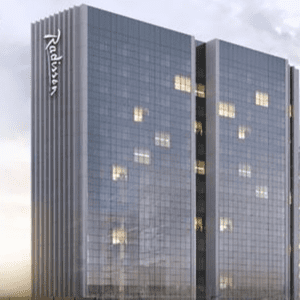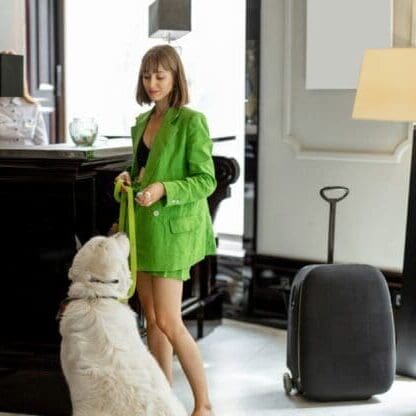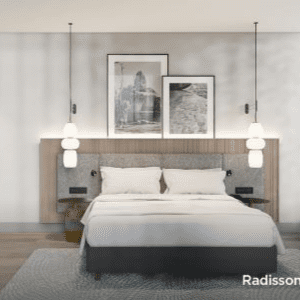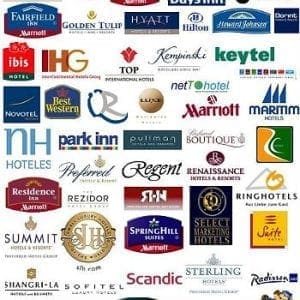 Whether it’s Andaz, Centric, Cordis, Even, Moxy, Mama Shelter, Virgin, Yotel or Z Hotels, the hotel industry is in a new and exciting phase as it evolves further from its traditional roots. Gone is standardisation and in has come flexibility and choice. The emphasis is on varied, curated experiences targeted at different audiences.
Whether it’s Andaz, Centric, Cordis, Even, Moxy, Mama Shelter, Virgin, Yotel or Z Hotels, the hotel industry is in a new and exciting phase as it evolves further from its traditional roots. Gone is standardisation and in has come flexibility and choice. The emphasis is on varied, curated experiences targeted at different audiences.
Some of the key issues and trends we predict will influence the sector and be prevalent during 2019 are outlined below:
Location and market
Operators are, in some cases turning the tables on ‘traditional’ site criteria (e.g. city centres near commercial businesses) to reflect the aspirations of their concept or market. We have witnessed locations being selected to reflect a brand but also the vibe sought by their target clients. As cities expand and older run-down areas become trendy, their character and profile change and appeal to certain markets. Lisbon, Dubai and Amsterdam are all cities whose evolving office, residential, retail and leisure areas have influenced location choice.
Style
Differentiation has become the watchword in any commercial strategy. This may be achieved simply through design and concept or brand choice.
It is still the case that a recognised established brand (such as a Holiday Inn, Ibis or Travelodge to name a few) may suit the project best, particularly in secondary underdeveloped hotel markets outside city centres where a more standardised solution is the right fit.
However, where good year-round demand exists from mixed markets, in prime high value locations (e.g. Paris, London, New York) some owners have rejected the comfort of a brand to create their own individualised offering coupled with a niche or quirky name to stand out from the crowd. Examples include the first Hoxton Hotel and the Ampersand.
Experiences, lifestyle, themes
From major hotel brands to niche independent offerings, the Instagram generation has influenced a trend towards offering experience-based themes or clear links to lifestyles and focused needs to clearly position a hotel product.
Major global brands have been doing so for decades (e.g. Hard Rock, Virgin) but not to the extent that it is apparent now. Other links between hotel brand and lifestyle offering include:
- Nhow Hotels-Music and lifestyle
- Art’Otel; Art
- Even, Naad Wellness (India) and Dar Hi Life, (Tunisia) Wellness:
- Axel: Diversity/Gay
- 1 Hotels: Sustainability
- Daddy Long Legs Art Hotel, Cape Town; Creative spirit
- Accommable Accessible travel (travellers with a range of disabilities);
Apart from a clear ‘identifier’, the imagery associated with some of these is highly marketable as is the ethos or vibe of the end offering.
Technology
Technology continues to drive change. Owners will need to balance the desire for savings by introducing technology based solutions with the level of service standards expected by its clients. Innovations need to be tailored to fit the needs of certain clientele for whom the balance between higher service levels and the novelty of innovation may differ.
Hilton’s Innovation Gallery and other global players looking at diversifying their portfolio offerings will no doubt reveal some hidden surprises in the coming years.
Encouraging local communities
Hotels are opening up to the local community. Private space has become public. New concepts openly encourage local communities into hotels and blur the boundaries between work, pleasure and lifestyle. This has impacted the wider lodging sector, leading some hospitality brands to adopt similar changes (e.g. Accor’s Jo & Joe).
This trend is embodied in We Work and We Live (US) (‘a new way of living based on community’) and ‘Live Zoku’ (Amsterdam) where local community events are regularly hosted at the venue and merge with the traditional hospitality offering.
Service standards
Reflecting a general trend towards less formality has impacted on style of service. ‘Casual’ has taken over from ‘formal’ reflecting the differences already experienced by the consumer in many other retail and leisure offerings. Top hats are out, jeans and chinos are in.
Design & Construction
Design and construction will continue to evolve.
Newer techniques include modular, pod and prefabricated hotel bedrooms as epitomised by Bloc Hotels, QBic, Zip, Sleepbox, inBox Capsule and Yotel. Open, flexible and casual spaces (with limited food offerings and workspaces) have transformed traditional and more formal reception and lobby layouts. W Hotels started the trend, but it is widely replicated by major brands including Citizen M, Motel One and many others.
Partnerships
Specialisation will continue with partnerships attracting expertise where needed. Mediocre hotel food and beverage or leisure offerings are a thing of the past. To maximise asset value and minimise risk, owners have teamed up with specialist operators.
Established partners include the ONE Group that have a range of their own restaurant brands (such as STK) creating dining destinations within hotels. Different approaches include The Pig, a small chain of outlets in the UK positioned as ‘restaurants with rooms’ which uses produce taken from their own kitchen gardens. Here, the traditional weakness of hotels (the F& B offering), is positioned as a key strength. The Ned in London has gone further to provide a destination dining theme with ten different restaurant outlets — mostly run by external specialists.
Where do we go from here?
We expect these trends to continue. ‘Accommodation’ or @Lodging’ may reflect a more accurate definition than purely ‘Hotels & resorts’ as the previously defined edges between hotels, other forms of accommodation, community, work and leisure spaces becomes increasingly blurred. The US (which often leads trends in Europe) may see competition from new concepts born from different cultures and from independent entrepreneurs.
Segmentation in all areas from full service hotels to automated minimalist offerings will continue and rapid changes in technology will ramp up its effect on styles of operation.
We look forward to being part of this exciting future.
About the author
Douglas Grant is from Arc Consulting Partners, a specialist industry advisory firm located in the UK. Arc assists owners and investors to identify, appraise and maximise the performance of businesses, development and project opportunities in hotels, resorts and hospitality throughout Europe.































